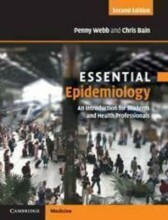Summary: General Toxicology | WUr
- This + 400k other summaries
- A unique study and practice tool
- Never study anything twice again
- Get the grades you hope for
- 100% sure, 100% understanding
Read the summary and the most important questions on general toxicology | WUr
-
1 History and scope of toxicology
This is a preview. There are 3 more flashcards available for chapter 1
Show more cards here -
Name two examples of the use of toxins in the history
- animal venoms and plant extracts were used by the earliest humans for hunting, warfare and assassination
- The Romans used poison in politics
- in the middle ages poisons were recommended for people who wanted to meet the devil
-
What was the contribuion of paracelcus to the filed of toxicology?
Paracelcus introduces the concept of dose
-
What was the contribution of orfila to the filed of toxicology?
He was the first toxicologist to use autopsy material and chemical analysis systematically as legal proof of poisoning. He also introduced the concept of target organ
-
What is the contribution of Van Hasselt to the field of toxicology?
Van Hasselt in considered to be the first Dutch toxicologist
-
What is ebers papyrus?
an egyptian compilation containing about 700 magical formulas and folk remedies to cure afflictions like crocodile or scorpion bites. They contain information on many recognized poisons
-
What is functional foods?
in addition in the field of food toxicology there is an increasing interest for the use of bioactive food ingredients in functional foods, nutraceuticals and food supplements, for which, in addition to research supporting the various beneficial health claims, toxicological data and proper risk-benefit assessments are also required -
2 Principles of toxicology
This is a preview. There are 10 more flashcards available for chapter 2
Show more cards here -
What are de specialized areas of Toxicology?
- clinical and forensic toxicology = this field concerns the diagnosis and therapy of poisoning- occupational toxicology = this sub-field deals mainly with the prevention of poisoning in the professional field- biological monitoring= i.e. measuring systematically the internal exposure of workers at the workplace- food toxicology = this sub-field comprises counseling and research concerning chemicals in food including additives, contaminants and substances that are naturally present- environmental toxicology = it studies not only the harmful effects of environmental pollutants on man, but also takes into account others organisms that are part of natural ecosystems -
How goes the process of risk assessment?
Two steps have to be intergrated:
· Hazard characterisation, including qualitative and quantitative characterisation of the effects.
· Exposure assessment, defining the actual exposure levels.
After risk characterization, risk management is the next stap. They are going to select which type of actions need to be taken. Based on risk assessment and social, economic and political aspects -
What are the qualitative principles of toxicology?
You have to look at qualitative principles when you're doning Hazard characterization. Most important is to determine the target organ! You also look at primary lesion: primary molecular damage. And if possible you can also look at receptor leven: the molecular structure affected by the toxic agent (DNA, protein like enzyme, ion channel) -
What is the difference between local toxicity and systemic toxicity?
Local toxicity= the first contact place in the body is the part of the body that gets sicksystemic toxicity = its first absorbed in your body where it will cause sinkness is one of your organs (target organ)
- Higher grades + faster learning
- Never study anything twice
- 100% sure, 100% understanding
































